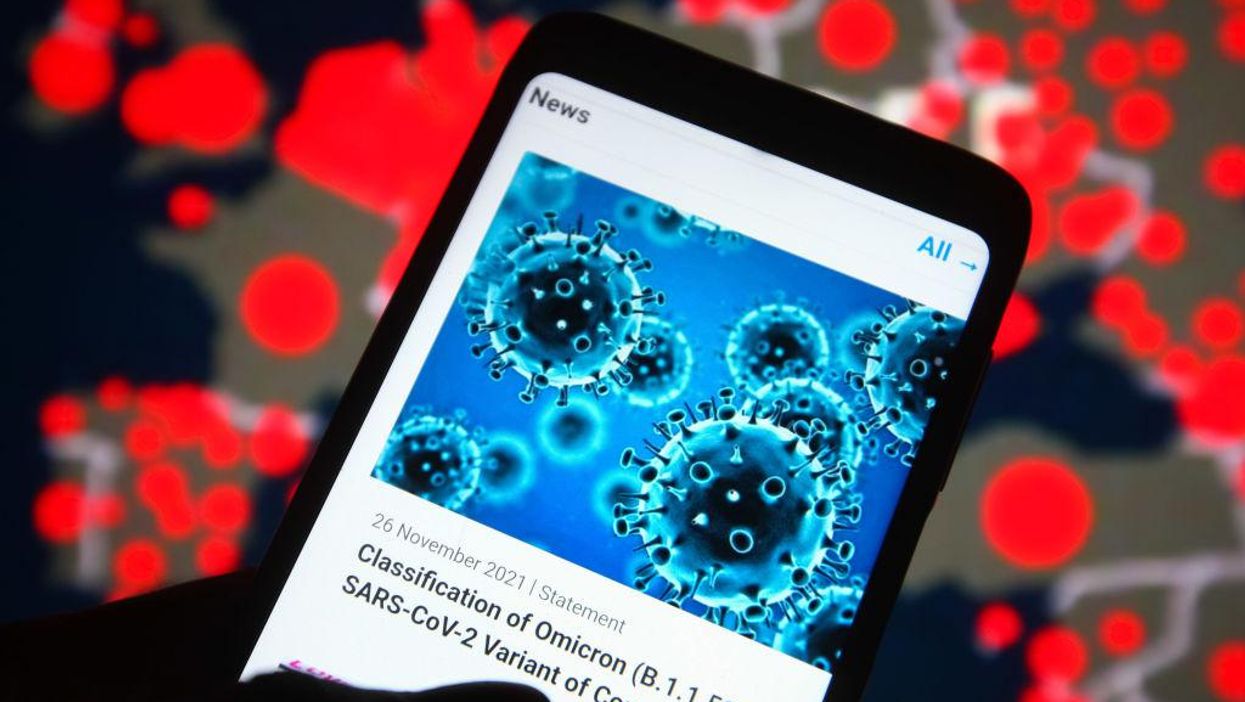
Photo Illustration by Pavlo Gonchar/SOPA Images/LightRocket via Getty Images

The South African doctor who was one of the first people to raise the alarm about the Omicron variant claims she was pressured by politicians and scientists "not to publicly state that it was a mild illness," and to instead say the strain is "serious."
Dr. Angelique Coetzee — who serves as the chairwoman of the South African Medical Association — was one of the first to identify the Omicron variant.
In November 2021, Coetzee started seeing patients with "symptoms that did not make immediate sense," including "intense fatigue."
"It presents mild disease with symptoms being sore muscles and tiredness for a day or two not feeling well," Coetzee said in November. "So far, we have detected that those infected do not suffer loss of taste or smell. They might have a slight cough. There are no prominent symptoms. Of those infected some are currently being treated at home."
It turned out that Coetzee's patients were infected with SARS-CoV-2 — B.1.1.529, a strain more commonly known as the Omicron variant.
After Coetzee went public with her findings, she was allegedly inundated with demands to renounce her determination that the new COVID-19 strain was "mild."
"I was told not to publicly state that it was a mild illness," Coetzee told German newspaper Welt this week. "I have been asked to refrain from making such statements and to say that it is a serious illness. I declined."
However, Coetzee said, "Based on the clinical picture there are no indications that we are dealing with a very serious disease."
"The course is mostly mild," she continued. "I’m not saying you won’t get sick if you’re mild."
Coetzee — who has been a doctor for 33 years — referred to the World Health Organization's guidance for management of mild COVID-19:
Patients with mild disease do not require hospital interventions, but isolation is necessary to contain virus transmission and will depend on national strategy and resources. Provide patients with mild COVID-19 with symptomatic treatment such as antipyretics for fever. Counsel patients with mild COVID-19 about signs and symptoms of complicated disease. If they develop any of these symptoms, they should seek urgent care through national referral systems.
She continued, "A serious illness is one in which we see acute pulmonary respiratory infections: people need oxygen, maybe even artificial respiration. We saw that with Delta — but not with Omicron."
Coetzee vowed, "They will not silence me."
Coetzee also gave an interview to Australia's Daily Telegraph this week, where she reiterated that she was the target of "attacks" from international scientists and politicians.
"Because of all of Covid’s mutations, all of these scientists and politicians who aren’t from South Africa were contacting me telling me I was wrong when I spoke out, that it was a serious disease ... they were telling me I had no idea what I was talking about, they kept attacking me," Coetzee told the outlet.
"In South Africa it is a lighter disease, but in Europe it has been a serious, serious illness, which is what the politicians want me to say ... there has been a lot of pressure from European scientists and politicians who have said, 'Please don’t say it is a mild illness.'"
"They are accusing me of lying, of downplaying Omicron because of how it has been in Europe ... in their minds, it is impossible for a disease with more than 38 mutations to be mild," she explained.
"But I have stated many times before it can be a serious illness if you are unvaccinated and have comorbidities but for the majority of people it is a mild illness. I am the one who has seen the patients first-hand but the politicians won’t listen."
Coetzee notes that if clinical research proves her wrong, then she will apologize.
But until that happens, she will "stick to her guns."
"I will not give in to pressure and I am not easily intimidated," she stated.
In both interviews, she did not reveal exactly which "scientists and politicians" attempted to get her to walk back her Omicron remarks. But she did say she was put under pressure from scientists from the U.K. and the Netherlands.